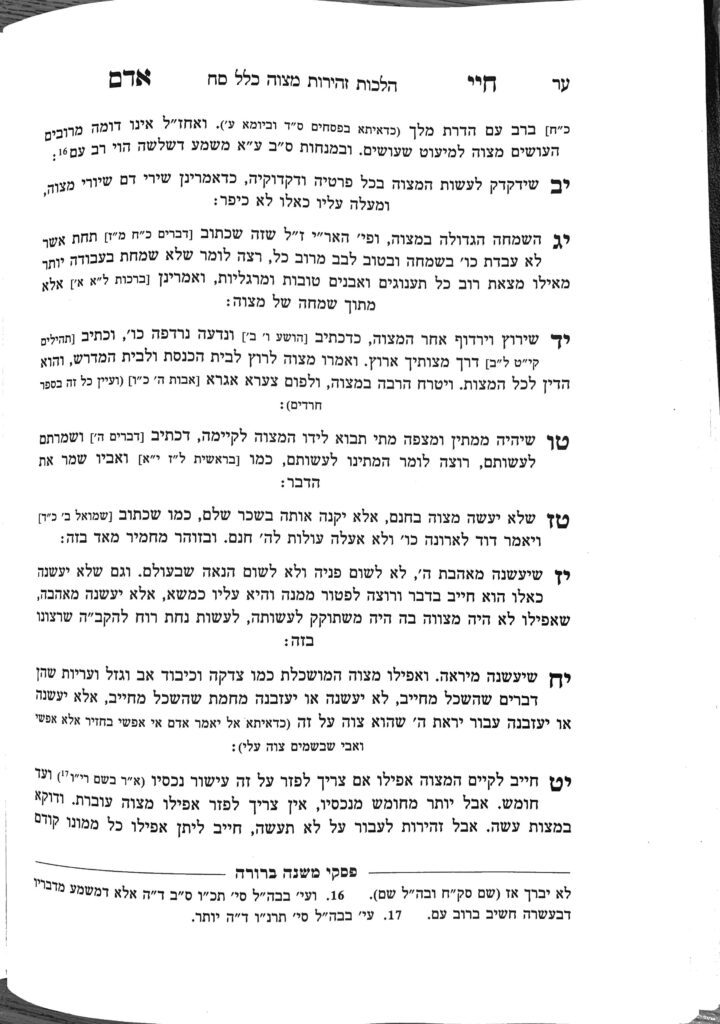We are continuing in siman 19, discussing the halachos of spending money on mitzvos.
Regarding tzedakah, the Chofetz Chaim points out in Ahavas Chesed (which deals with tzedakah, maaser and other similar topics) that the Rambam seems to indicate that a person would be allowed to give more than one fifth of their money to tzedakah, and doing so is a middas chassidus. The Rambam would seem to be going against the takana of Usha, which was established specifically to prevent someone from doing so.
The Chofetz Chaim suggests that there is a difference between when there are aniyim present (in the city) and when aniyim are not present. We find a general difference in halacha between when an ani is present and has a current need and when there is no ani present. When an ani is present, if one does not give them, they transgress the issurim of lo sikpotz, lo se’ameitz and the mitzvas asei of nason titein. Thus, for example, when a person pulls up to a red light, and someone asks for tzedakah, if it is clear they have a need, it is assur to ignore them. (One is chayav to provide for a non-Jew as well in such a context, due to darkei shalom.) The takana of Usha came to establish that a person should not give more than one fifth in such a case, and the Rambam understands that it is a middas chassidus to give more than one fifth. However, if there are no aniyim in the city, and one is actively going out to look for tzedakah opportunites, even the Rambam holds there is no middas chassidus to give more than one fifth, and one should not do so.
The Chofetz Chaim writes that the Birkei Yosef suggests this answer as well. However, the Chofetz Chaim is hesitant to pasken based on it because the Shulchan Aruch does not mention it.
In the sefer Nasiach Bechukecha, the author points out that the Rema paskens that one is not chayav to spend money on the mitzvah of tochacha. Certainly, if one believes it will be beneficial, and they want to spend the money, it is praiseworthy, but there is no chiyuv. The Levush explains that since many times the tochacha is not effective, Chazal did not require a person to spend money on it. Obviously, if a person has an approach which is effective, it is appropriate to spend money, but there is no chiyuv.
In a similar vein, Rav Yaakov Kaminetzky ztl suggests that the chiyuv to help individuals and correct them from doing aveiros is learned from hashavas aveidah. If the Torah is concerned about a person’s objects and wants others to care for them, certainly the Torah would want us to take care of others’ neshamos as well. He understands the mitzvah of hashavas aveidah to be the root for kiruv rechokim as well.
Summary
Some hold it is a middas chassidus to spend more than one fifth for an ani who is in one’s city and has a current need.
One is not chayav to spend money on the mitzvah of tochacha, but if they believe it will be beneficial, it is certainly commendable.



